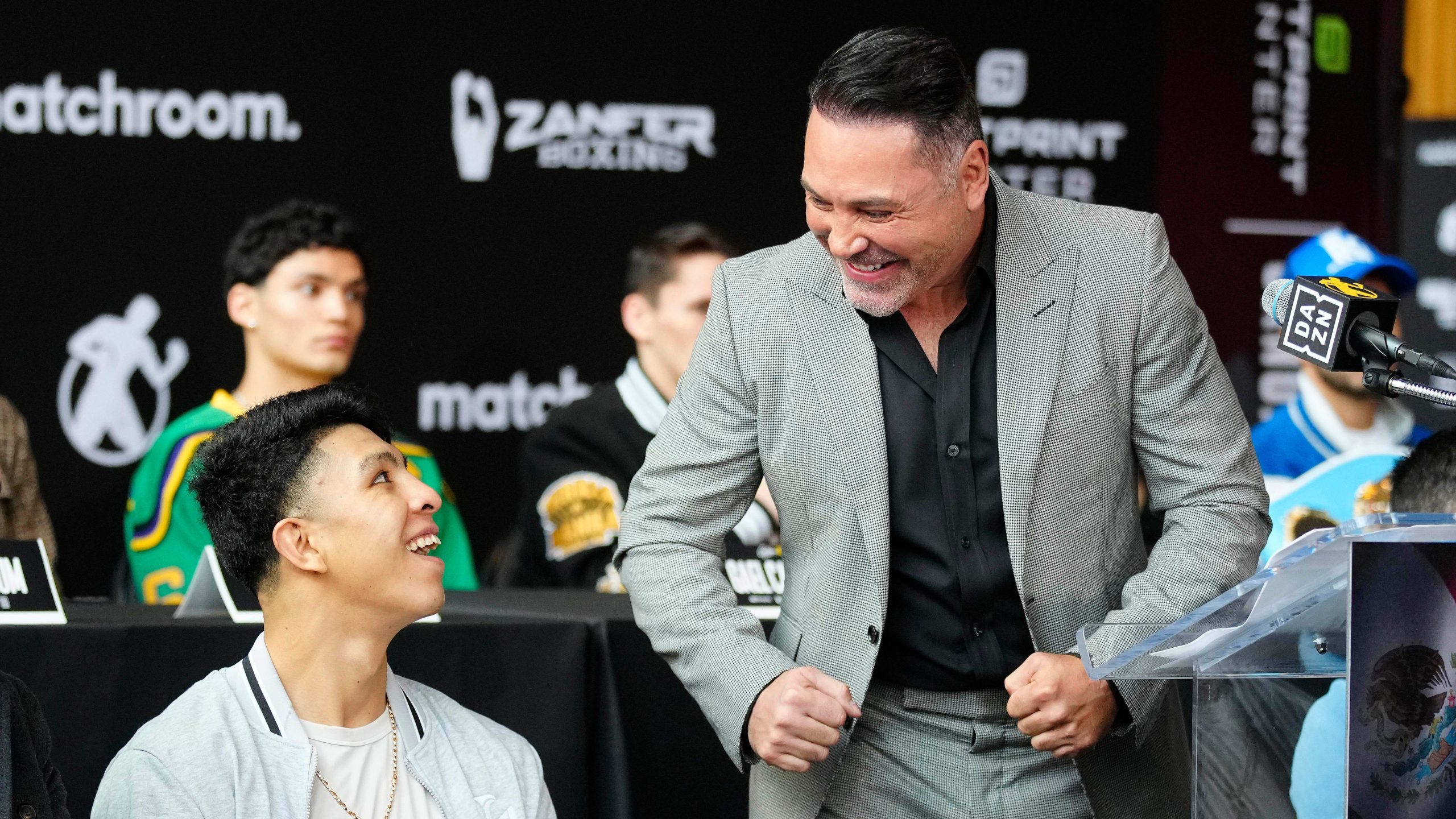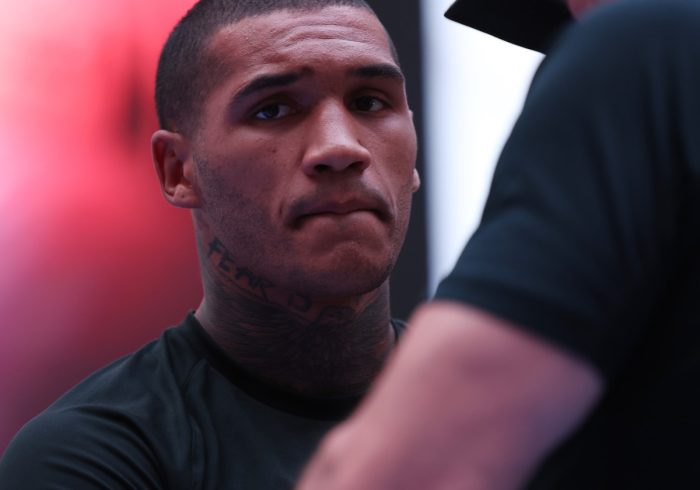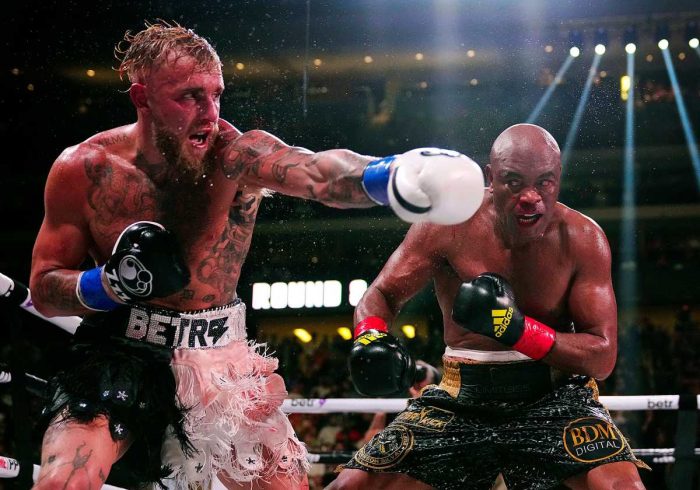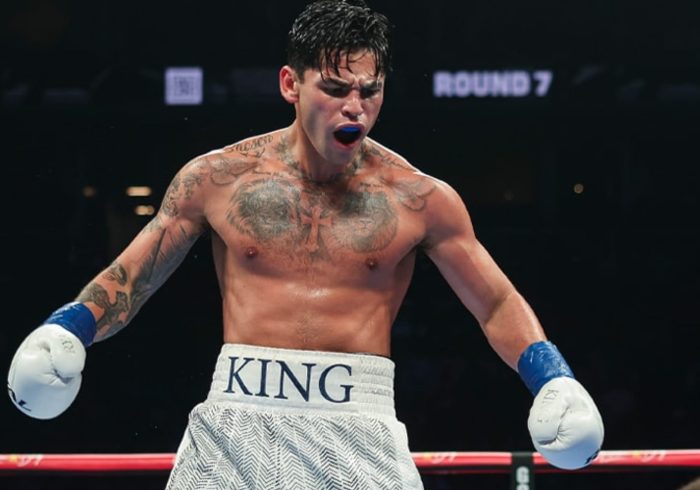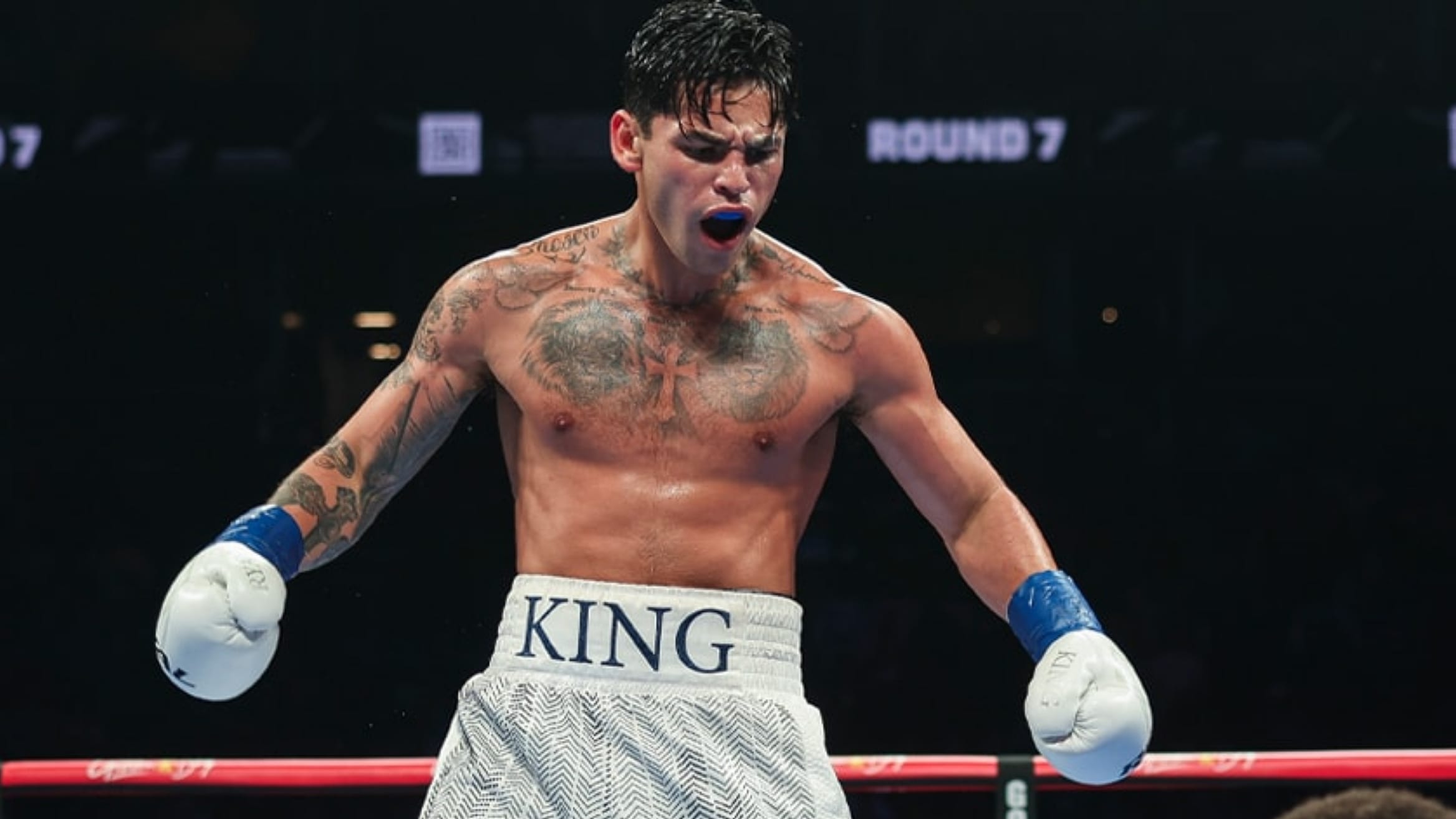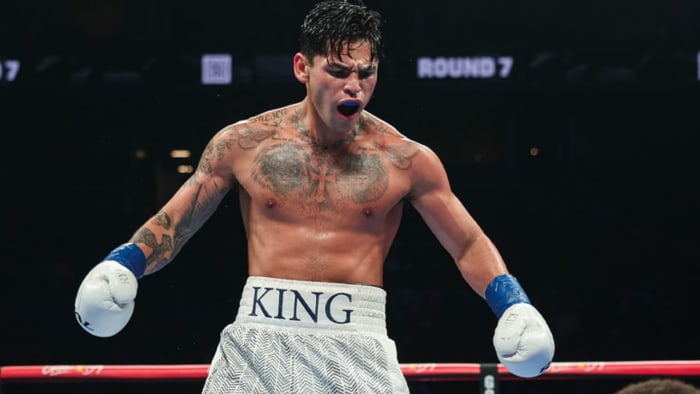LAS VEGAS – In 2010, Oscar De La Hoya, then a 30-something ex-fighter early in his new career as a full-time promoter, stood in a ballroom at the MGM Grand and declared a then 19-year old Saúl “Canelo” Álvarez to be the future of boxing.
On Wednesday, some fourteen years later, De La Hoya and Álvarez stood in the same room on the same dais, only this time it was De La Hoya addressing stinging remarks at Álvarez and Canelo leaping out of his seat to confront him.
Officially, Wednesday’s press conference was to promote Álvarez’s super middleweight title defense against Jaime Munguía. What it turned into was Álvarez and De La Hoya ripping the band-aids off old wounds. The relationship between the two has been frosty since Álvarez split from De La Hoya’s Golden Boy Promotions in 2020, with the two regularly sniping at each other through the press. Sharing a stage for the first time in five years, the tension quickly boiled over.
Addressing reporters, De La Hoya, Munguía’s co-promoter, quickly took aim at Álvarez. He questioned why Álvarez had spent so much time focused on him. He noted that Munguía was ready to face Gennadiy Golovkin in 2018, when Álvarez was pulled from the fight following two failed drug tests. He reminded Álvarez, who developed into boxing’s most bankable star in ten years with De La Hoya, that Golden Boy “built” him. That company, De La Hoya said, has always had one name.
“It’s mine,” De La Hoya said, “so put some f—ing respect on it.”
Álvarez, predictably, reacted angrily. He called De La Hoya an “imbecile.” He reminded De La Hoya that he was a star before he started working for Golden Boy. He accused De La Hoya of stealing from fighters, including Golovkin, Álvarez’s longtime rival, and those still working with him should “lawyer up.” Later, when a PBC interpreter sanitized the translation, Álvarez grabbed a mic and addressed the room in English.
“He tried to steal money, and he’s a f—ing ass—-,” Álvarez said. “That’s what I said. He’s a f—ing ass—-. He tried to [bring] attention to him, not for Munguía. He’s a f—ing ass—-. He steals from his fighter. That’s what he [does]. F—ing p—y mother——.”
On Thursday, De La Hoya’s attorney’s sent Álvarez a cease-and-desist letter, demanding that Canelo “retract his defamatory allegations that Oscar stole from boxers.” Álvarez’s lawyer, Greg Smith, responded by telling ESPN that Canelo “said what he said.”
Indeed, a simmering feud between two of boxing’s biggest names has become a full on war. In 2010, Golden Boy celebrated Álvarez’s signing. It was called “a historic day” in a press release. De La Hoya declared Álvarez to be a “star.” Álvarez said the chance to work with Golden Boy “was too good to pass up.”
In 2014, the bond between De La Hoya and Álvarez seemed stronger than ever. During a power struggle inside Golden Boy—a civil war that saw longtime CEO Richard Schaefer exit and many of the company’s top stars, who were represented managerially by Al Haymon, leave with him—Álvarez sided with De La Hoya. That decision, a longtime Golden Boy employee told Sports Illustrated “saved the company.” With Álvarez on board, Golden Boy was able to maintain its relationship with HBO and rebuild its stable.
In 2019, the relationship went south. Álvarez grew weary of De La Hoya’s public struggles with drugs and alcohol. A committed fighter—Álvarez’s signature slogan is “no boxing, no life”—Álvarez questioned De La Hoya’s commitment to his own work. “A betrayal,” is how a source close to Álvarez framed his feelings this week. When Álvarez found a way out of his contract in 2020, he never looked back.
De La Hoya (right) previously represented Álvarez and is now the co-promoter for Munguía (left), who faces Álvarez on Saturday.
Patrick Breen/The Republic / USA TODAY
On Wednesday, De La Hoya copped to his failings. He said he had been to rehab. “Several times,” De La Hoya said. He agreed that he had failed as a promoter “when work was not my priority based on my mental health, which I had neglected for so long.” But he reminded Álvarez of the success he achieved with Golden Boy, both in the ring, where Álvarez became a three-division world champion, and out of it. In 2018, Golden Boy negotiated a historic 11-fight, $365 million deal with DAZN.
Said De La Hoya, “He seems to have trouble remembering who helped him become a true global star.”
De La Hoya has other motives for antagonizing Álvarez. Munguía (43–0) is a heavy underdog against Álvarez (60–2–2). Munguía, 27, is young, aggressive and heavy handed but doesn’t have a fraction of the experience of Álvarez, 33, whose resume includes Golovkin, Floyd Mayweather and Dmitry Bivol. Getting under Álvarez’s skin, says De La Hoya, was part of the plan.
“Hopefully,” said De La Hoya, “it worked.”
Perhaps. Canelo–Munguía will be a firefight. Munguía has evolved into a dangerous offensive fighter in recent fights. He defeated former title challenger Sergiy Derevyanchenko last year—a fight hailed by many outlets as the Fight of the Year—and last January knocked out the durable John Ryder. Against Ryder, Munguía’s first fight with Hall of Fame trainer Freddie Roach, Munguía flashed some defensive skills.
But Canelo is not Derevyanchenko. He’s not Ryder. He may not be the pound-for-pound No. 1 who stormed through three divisions between 2018 and 2021 but he’s still quick, heavy handed with an elite ring IQ. De La Hoya believes Álvarez’s best days are behind him. On Saturday, Munguía will be the one who finds out.
“He’s walking in quicksand now,” De La Hoya said of Álvarez. “His injuries are catching up to him. He’s an old 33. You can be old depending on your wars. I think the stars are aligned for Jaime Munguía to take advantage of this situation Saturday.”
